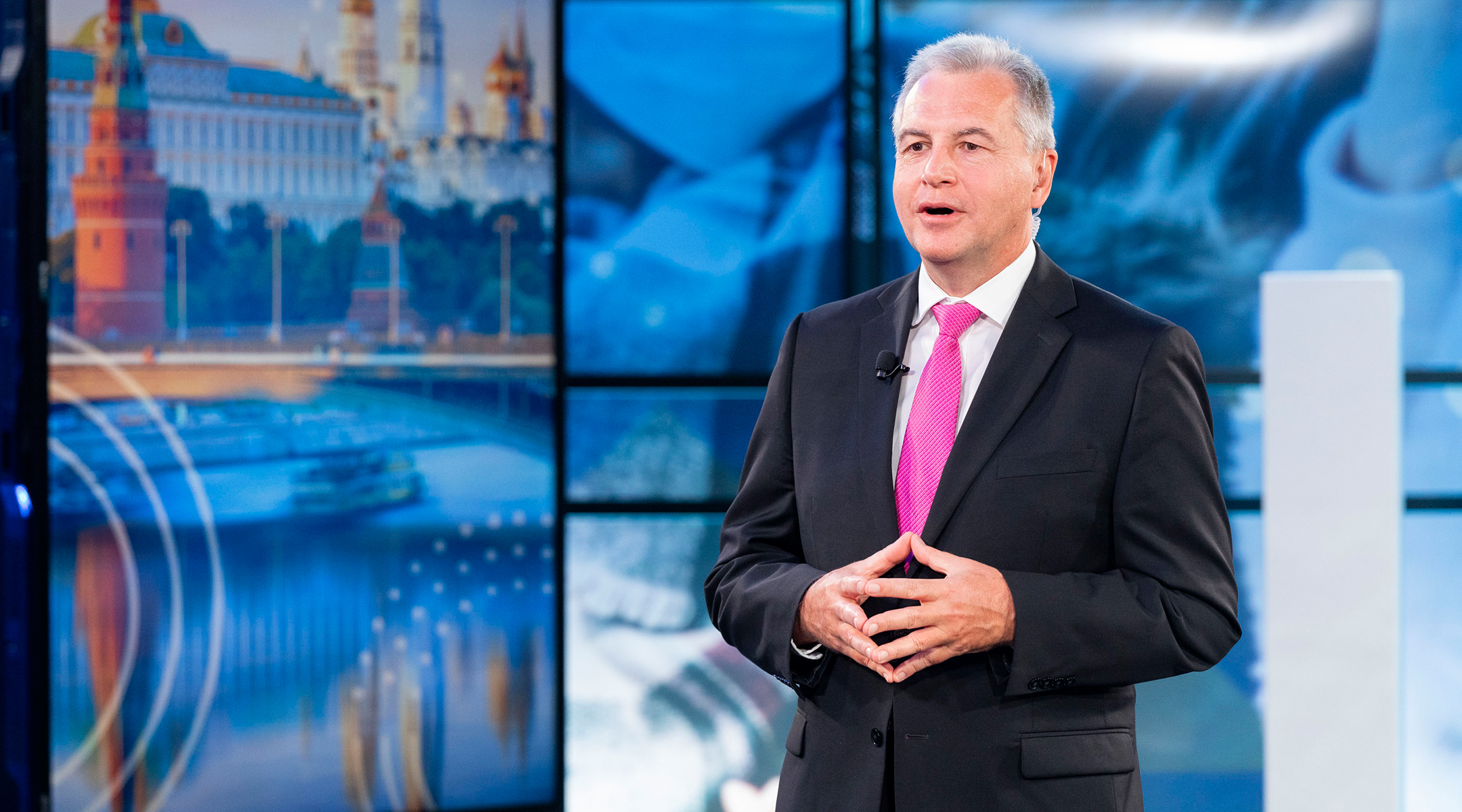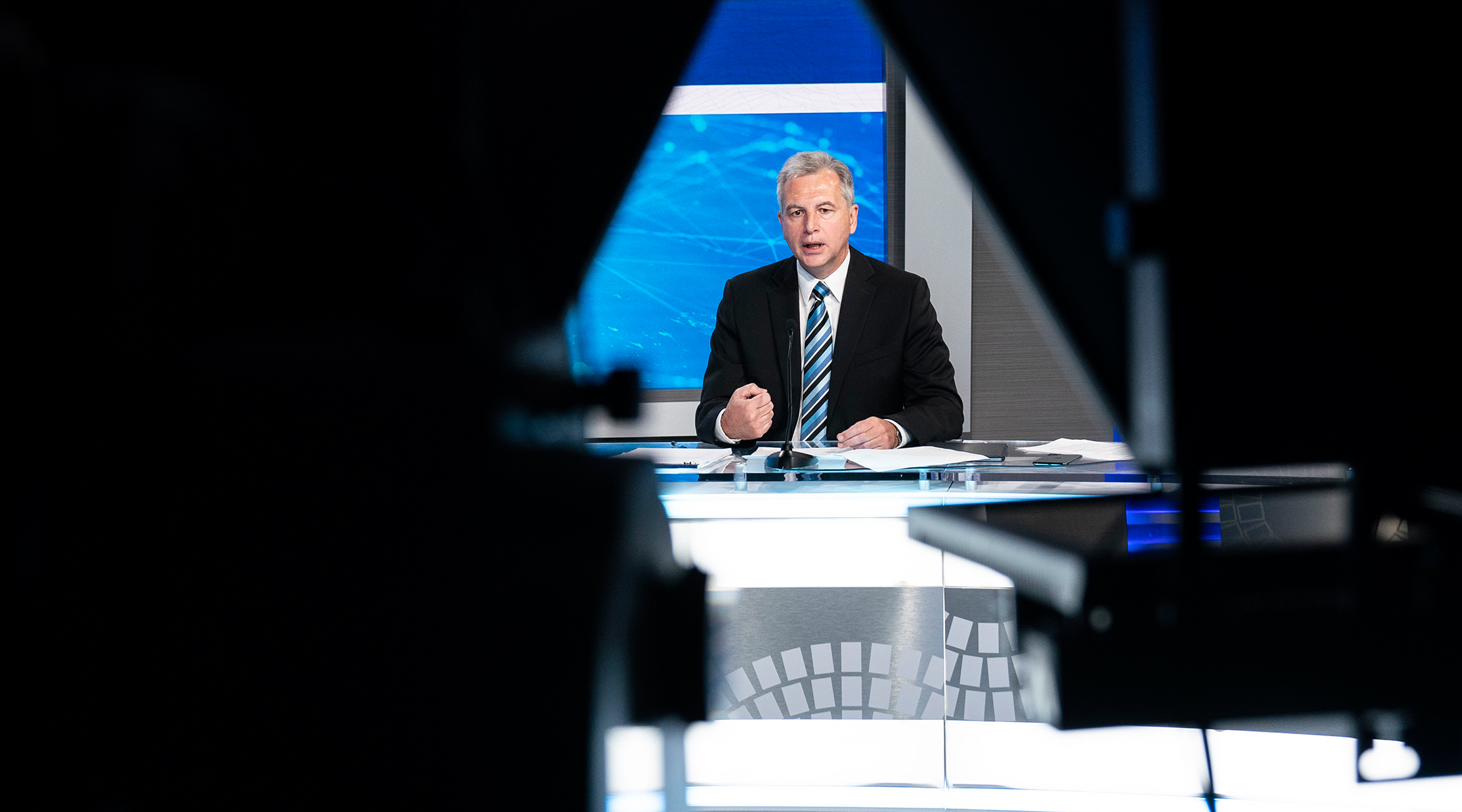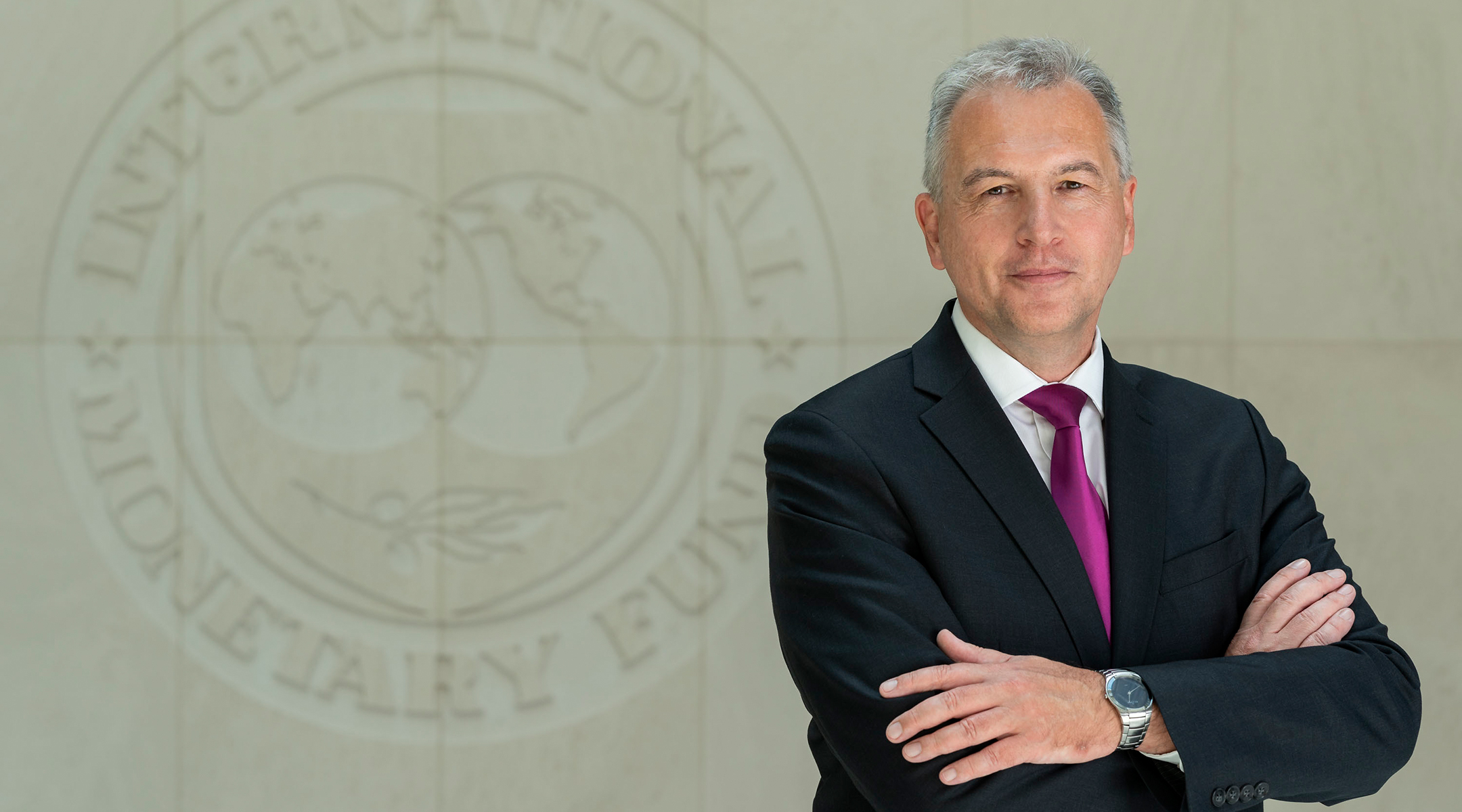This week, the IMF released its new World Economic Outlook (WEO), which considers the consequences of Russia's war in Ukraine, large-scale sanctions, and substantial humanitarian crisis. It projects the war will severely set back the global recovery, slowing growth and increasing inflation even further. It is expected that international spillovers and the humanitarian crisis will significantly affect Europe.
So, what problems will the global economy go through next month and years? What factors could remarkably affect the Ukrainian economy during the war? Whose help can Ukraine count on after peace prevails? The IMF's European Department Director Alfred Kammer has addressed these issues in an exclusive interview with Ukrinform.
UKRAINIAN AUTHORITIES DESERVED CREDIT FOR RESPONSE
- Let's start with Ukraine and its economic prospects. In early April, the Ukrainian government estimated the contraction of GDP at 16% in the first quarter and up to 40% at the end of the year. How does the IMF assess the situation in Ukraine, and what primary factors could significantly affect the prospects?
- At the outset, I would like to underscore that the Ukrainian authorities deserved tremendous credit for their emergency response when the war started.
The war is causing a heartbreaking loss of life, physical capital and critical infrastructure destruction, large outward migration (4 million people, about 10 percent of the population), and internal displacement (6.5 million people). This is all having a highly disruptive impact on the country’s productive capacity, including in the important agriculture sector (which is responsible for 12 percent of GDP and half of the export revenues). Consumption will likely be significantly lower and investment sharply down. Given the exceptional uncertainty regarding the length and geographical reach of the ongoing war, I would not attach too much importance to precise estimates at this juncture, but for the moment, we estimate an annual output decline of 35 percent, which is roughly consistent with the estimate you quote.
It is difficult to deploy policies that can offset a shock of this nature, and we very much hope peace prevails soon.

- Recently, the Fund's Executive Board has agreed to open an IMF Administered Account for Ukraine. Could you please give us more details on this tool and how effective it could support Ukraine's economy?
- Indeed, on April 8, an Administered Account was established, providing potential donors with a secure vehicle to direct financial assistance to Ukraine. It is intended to channel donor resources in the form of grants and loans aimed at assisting Ukraine to meet its balance of payments and budgetary needs and help stabilize its economy. Donors will benefit from the IMF’s tested infrastructure to quickly deliver authenticated payments. The Government of Canada has already pledged up to CAD 1 billion (about US$ 800 million) to be disbursed to Ukraine through this Account.
IMF AND UKRAINE ENGAGE CLOSELY
- What are the main issues the IMF and Kyiv focus on now in their engagement? Does the IMF have other programs on the table to support the Ukrainian economy?
- The IMF responded quickly by approving, on March 9, the disbursement of the maximum available amount of US$1.4 billion to Ukraine under its Rapid Financing Instrument. The IMF staff has since continued to engage closely with the authorities on their emergency response to the economic impact of the Russian invasion.
The authorities have also publicly emphasized that they intend to work with the IMF to design an appropriate economic program aimed at rehabilitation and growth when conditions permit.
- Is the Fund considering the possibility that Ukraine could postpone part of its loan repayments? After all, saving several hundred million dollars is essential for a country in wartime.
- Let me simply underscore here that the Ukrainian authorities have made clear they are willing and able to continue servicing their debt in a timely fashion.

FINANCIAL INSTITUTIONS ARE READY TO SUPPORT UKRAINE
- How does the IMF interact with other international financial institutions in developing a policy to support Ukraine? Whose help can Ukraine count on during and after the war?
- All stakeholders and international partners are closely collaborating to provide the most adequate and complementary support to Ukraine in these difficult circumstances. It is important to note that different institutions have different mandates and lending instruments, which in turn impact the nature of their support. The IMF is in close contact with many international financial institutions (World Bank Group, EBRD, European Commission, to name a few) and bilateral donors, but also other institutions whose role is highly relevant in the current crisis – like the UNHCR or the International Committee of the Red Cross. Such coordination is likely to be even more important in the post-war era when the time comes for financing the country's reconstruction, restoring economic policies to normal settings, and putting the country back on a strong and sustainable growth path.
WAR IMPACTS EUROPEAN ECONOMY
- Now, let's talk about the broad impact of the Russian war in Ukraine. According to your new forecast, what are the main economic challenges Europe and the world will feel next months?
- The war is already having worldwide spillovers through commodity markets, trade, and financial channels. Even as the war reduces growth, it will add to inflation. Fuel and food prices have increased rapidly, with vulnerable populations—particularly in low-income countries—most affected.
For Europe’s economy, the war in Ukraine has struck at a time when private consumption and investment are still below pre-pandemic trends, and the pandemic itself continues to weigh on activity. Large increases in commodity prices and continued supply-side disruptions are now pushing inflation to higher levels, cutting into household incomes and firm profits.
New risks loom from escalated fighting and disruptions to critical energy flows. The war has also triggered a massive flow of refugees. Overall, GDP growth in European economies (excluding Russia, Turkey, and Ukraine) is forecast to be 1.1 percentage points lower than in the World Economic Outlook Update of January 2022, versus 0.8 percent for the global economy as a whole.
For Europe’s policymakers, the main challenges are clear: caring for the refugees; helping vulnerable households and firms cope with higher energy costs; beefing up energy security; and, in concert with social partners, ensuring that wage and price expectations remain well-anchored.

RISKS OF POTENTIAL FOOD CRISIS
- How significant is the threat of a new regional or global food crisis, given that Ukraine has to interrupt its grain and other foods exports because of the war?
- Because Ukraine is an agricultural powerhouse – the 6th largest producer of wheat and barley, the 4th largest corn producer, and the world’s largest exporter of sunflower oil– the war is rattling already-stressed global food markets.
Prices for wheat, corn, and barley have reached ten-year highs, affecting everyone. Higher food and energy prices hurt consumers’ purchasing power across the globe, particularly among low-income households, and therefore also increase the probability of domestic social unrest. This is also growing the difficult policy trade-off between ensuring inflation expectations remain anchored and supporting growth.
Furthermore, supply shortages affect key importers such as Egypt, Libya, and Lebanon. Ukraine is also one of the largest suppliers to the World Food Program (40 percent of total wheat supplies), which could potentially affect vulnerable populations in Afghanistan, Yemen, and Sub-Saharan Africa.
PROSPECTS FOR ENERGY POLICY
- Russia's war in Ukraine and large-scale Western sanctions have affected energy prices in Europe and on a global scale. In your opinion, would this be an additional impulse for a faster transition to green energy in Europe?
- We expect that this should speed up the green transition over the medium term. However, in the short term, some countries may initially rely more heavily on fossil fuels, such as coal, to meet immediate needs. Nonetheless, fossil fuel prices have increased relative to those of renewable energy, making investing in clean energy sources more attractive. Moreover, with energy security now high on the political agenda, the rationale for boosting clean energy sources is even stronger than before. Indeed, multiple European countries have announced measures to reduce fossil fuel dependence by accelerating the deployment of renewables. Continued commitment to the policies underpinning the emissions targets also provides certainty to investors that investments in clean energy will pay off.
Yaroslav Dovgopol, Washington, D.C.
